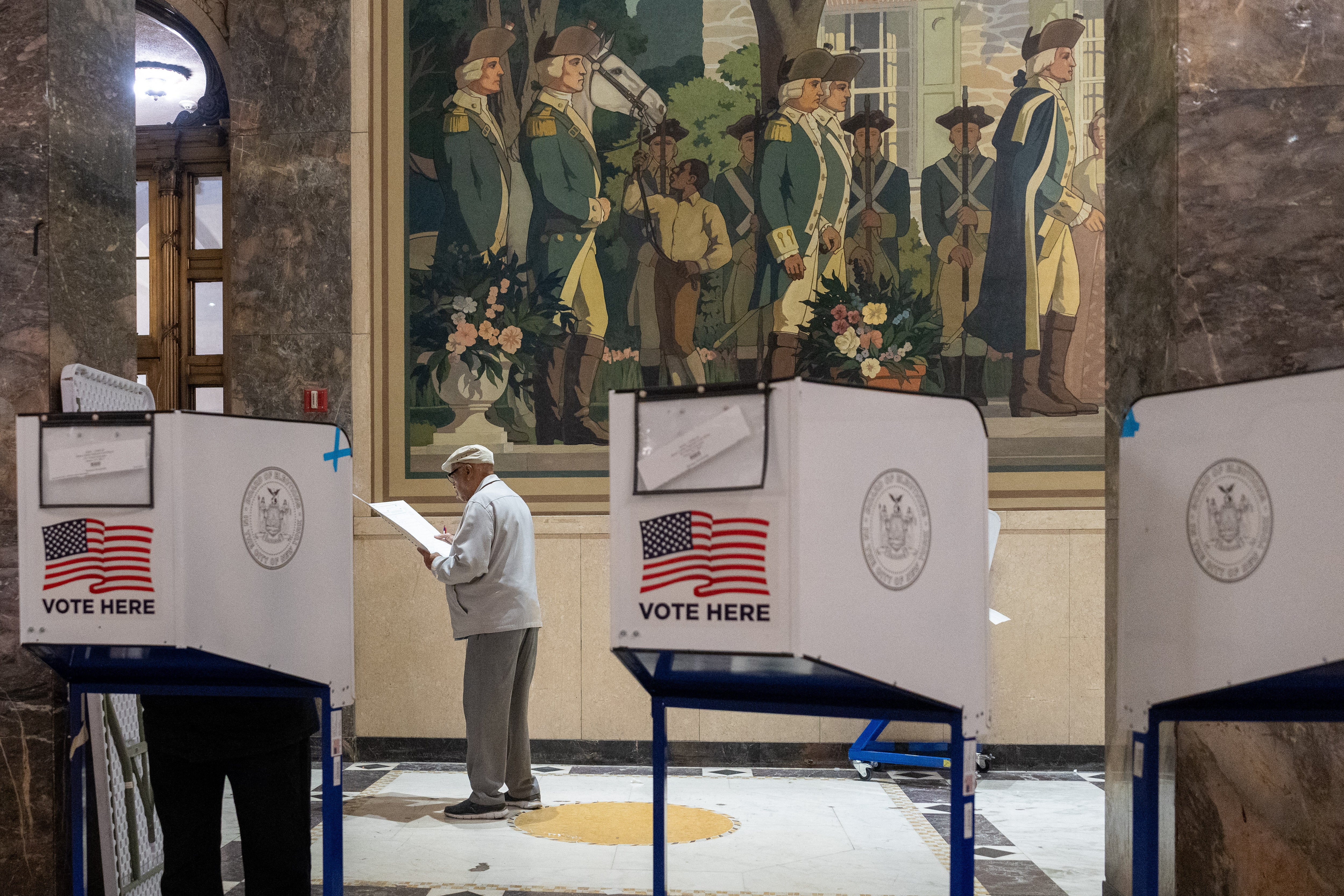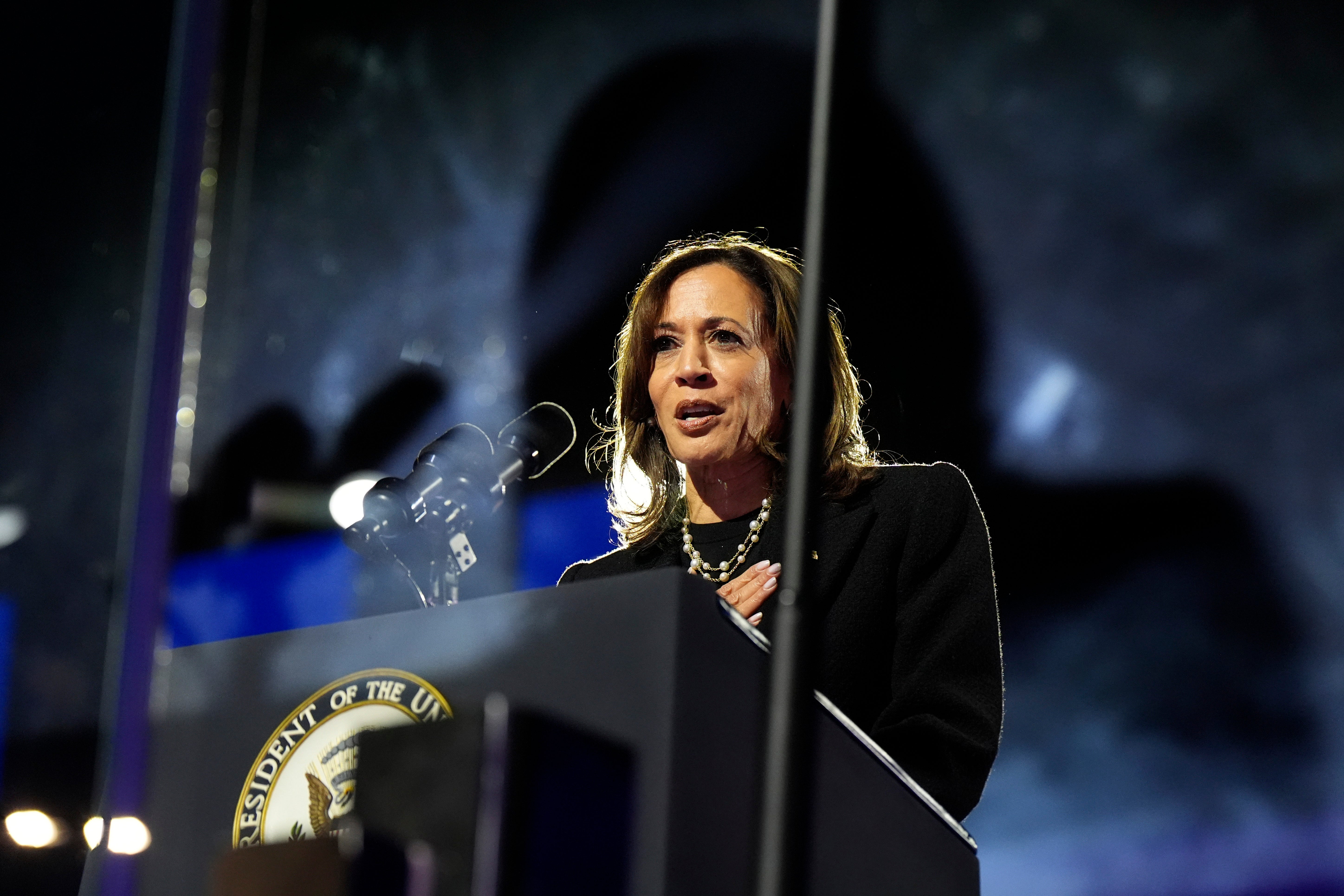Two failed assassination attempts, the incumbent’s presidential campaign falling apart, and several major party defections later, the drama of the 2024 election is about to reach a crescendo.
On Tuesday, millions of voters are flocking to polling locations across the country to cast their votes in what is believed to be one of the most hotly-contested presidential elections in history, with Kamala Harris and Donald Trump effectively deadlocked in the national polls.
An estimated 82 million Americans – more than half of the 2020 electorate – have already voted early, according to the Associated Press.
Here’s what you need to know about timings on election night (and beyond):
When do polling stations close?

Since the very first ballot center in Vermont opened its doors at 5am ET on Tuesday morning, polling stations across all 50 states followed suit.
Poll closures also vary state-by-state from 6pm in parts of Kentucky and Indiana to 1am on Wednesday morning at the very last ballot center in Adak, Alaska.
Below is the full list of times (all in Eastern Time) when the last polls close across each state. (There are sometimes variances in timings between different counties and municipalities within a state.)
- 7pm: Georgia, Indiana, Kentucky, South Carolina, Vermont, Virginia
- 7.30pm: North Carolina, Ohio, West Virginia
- 8pm: Alabama, Connecticut, Delaware, District of Columbia, Florida, Illinois, Maine, Maryland, Massachusetts, Mississippi, Missouri, New Hampshire, New Jersey, Oklahoma, Pennsylvania, Rhode Island, Tennessee
- 9pm: Arizona, Colorado, Iowa, Kansas, Louisiana, Michigan, Minnesota, Nebraska, New Mexico, New York, North Dakota, South Dakota, Texas, Wisconsin, Wyoming
- 10pm: Montana, Nevada, Utah
- 11pm: California, Idaho, Oregon, Washington
When to expect exit polls?

One of the earliest, albeit primitive, indications for who will win the White House will be the exit polls: in-person surveys of those who have cast their ballot outside polling centers.
At 5pm, members of the National Election Pool can start releasing the first batch of exit poll data after the press embargo breaks. However, full exit poll results can’t be released until polling closes across the entirety of individual states (listed above).
Voters are asked about the issues that matter to them most – from the economy to abortion – rather than the specific candidate they voted for. Demographic data – such as age and race – may also be collected.
Exit polls give hints as to how the night might go rather than providing a basis for projecting the result – someone staunchly pro-choice may be more inclined to vote for Harris, for example.
Despite not giving precise data about which way an individual has cast their vote, the findings are based on a much larger sample size than typical polls seen prior to Election Day.
When will we know the results?

It took four days after Americans cast their ballots in 2020 for Joe Biden to be declared the winner.
This election cycle, there are three possible scenarios for when a winner may be announced: the race is called on election night; the race is called in a matter of days; it could be weeks until a result becomes clear.
A key indicator, as ever, will be how well candidates do in the swing states – Arizona, Georgia, Michigan, Nevada, North Carolina, Pennsylvania and Wisconsin.
While Trump and Harris are neck-and-neck across the battlegrounds, it is possible the polls turn out to be incorrect and the race may not be as close as predicted – and therefore won’t take too long to call a winner.
The speed of vote counting will also impact when a vote is announced, with the counting of mail-in ballots in Pennsylvania not able to begin until Wednesday morning.
Nevada is another state that takes longer to count the vote, with mail-in ballots postmarked on Election Day counted as long as they are received by Saturday.
If the race is as close as pollsters predict, forecasters may not be comfortable calling the race for days due to possible outstanding mail-in ballots.
As seen previously, legal challenges can further slow down vote counting.
There are allegedly over 20 voting and election cases pending across 40 states (although concentrated in the swing states), Democratic election lawyer Marc Elias told the BBC.
With the election on a knife’s edge, a recount – like that seen with George Bush and Al Gore in 2000 in Florida – could also slow down the process. In the Bush-Gore case, the result was decided by the Supreme Court a month after Election Day.

